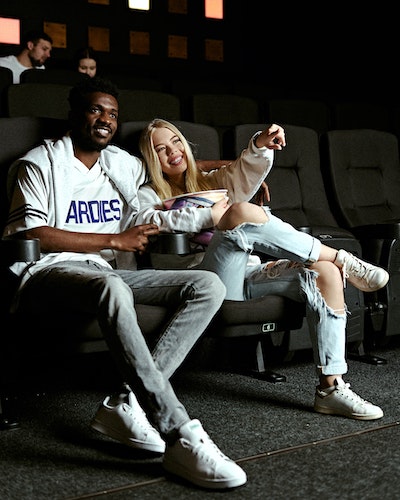Change & Relationships

Navigating Your Relationships Through Change
In his philosophical writings, Jean Jacques Rousseau wrote about a phenomenon that he coined the social contract. What Rousseau believed was that each relationship operates by an unwritten set of rules. He thought that this social contract was the thing that made society run smoothly. Fast forward and you will likely find that you may have all kinds of unspoken forms of communication and boundaries when connecting with others. You are also likely to share common interests and have a set of routines that fit your norms or what is comfortable to you. While you may go to the market and pick up a latté on Saturday mornings, you might spend Thursday evening in the summers at a friend’s backyard, drinking beers and sharing stories from the week. So what happens when this social contract is broken and the rules change?
It may not be intentional, but when one person in a relationship changes their drinking patterns, it has direct implications on their partner. Before the change, you and your partner knew how to interpret one another’s cues, patterns, stressors, and decision making, but all of those things shift with a change in substance use. The missing ingredient is clear and open communication. When there’s a change in intentions, it’s important to discuss it openly and set parameters that feel meaningful, supportive, and achievable for both individuals. The terms of the contract change. You may have to redefine the things you do individually and as a couple, as well as the way that you share your time, and that’s normal.

Planning is an effective way to consider the experience and needs of each partner. If you are preparing for a barbeque with friends, for instance, it helps to think ahead. If your partner is going through change, their emotions and triggers may seem inaccessible or different from your own experiences. Thinking about how you might feel if you were in their position gives you empathy for their experience. If you can imagine the kinds of situations or stressors that might overwhelm or trigger your partner, you can assess how you might approach the event differently. While this may feel like a challenging circumstance, it is not dissimilar to how some couples navigate introversion and extraversion, life changes with pregnancy, or changes to mental and physical health. Becoming in tune with your partner’s needs and communicating your own gives you the clarity to approach the situation with compassion.
In some cases, you might plan to include your partner in your regular activities but change your approach. If you regularly go for hours at a time, you might shorten the window of exposure. You could plan to bring special non-alcoholic beverages that make your partner feel less triggered and a part of the fun.
You might be doing this: going to BBQs with six-packs
You could try this: Bringing non-alcoholic beverages or trying a new mocktail recipe
You might be doing this: losing count of your drinks
You could try this: only bring what you intend to drink and space them out with water or other non-alcoholic beverages
You might be doing this: the first to arrive and the last to leave
You could try this: show up just before dinner and enjoy a great meal connecting with friends and then leave shortly after. If you need an excuse, say you have an early morning workout or appointment

You can help your partner come up with a few excuses about why they’re not drinking. It’s useful to have these in your back pocket when you’re out with family, friends, or colleagues. Your partner might say they’re on a diet, have a long run planned in the morning, or are doing a no drinking challenge. You might also split up for the evening if it makes each of you more comfortable, and if you decide to do so, you can plan another time when you will do an activity together. When you reconnect, show interest and support in how they choose to spend their time. It can be helpful to cultivate new interests together that occur during drinking-neutral time. Perhaps you want to explore theatre in the city or take on a sport like tennis, jogging, or biking. If you honour your partner’s change and redefine or recreate the parts of the relationship that are important to you, it will mitigate triggers and strengthen your bond. You may also find some new dimensions to your relationships and hobbies.
Looking back over your life, you’ll find that you’ve had different growth curves and phases, and the definition of fun has changed. That’s ok. Take some time to reflect on what fun looks like for you now. Some criteria might be different. If once fun meant cutting loose, now it might mean feeling restored and balanced. Take some time to talk with your partner about their definition of fun and look for areas of overlap or ways that you can merge definitions to share time and experience. Just because you once loved live music and bustling patio scenes doesn’t mean you can’t enjoy cooking and painting now. All of that could change, but the key is to follow your inner compass and find the activities and lifestyle conducive to your definition of appropriate drinking.
Access the ALAViDA TRAiL app.